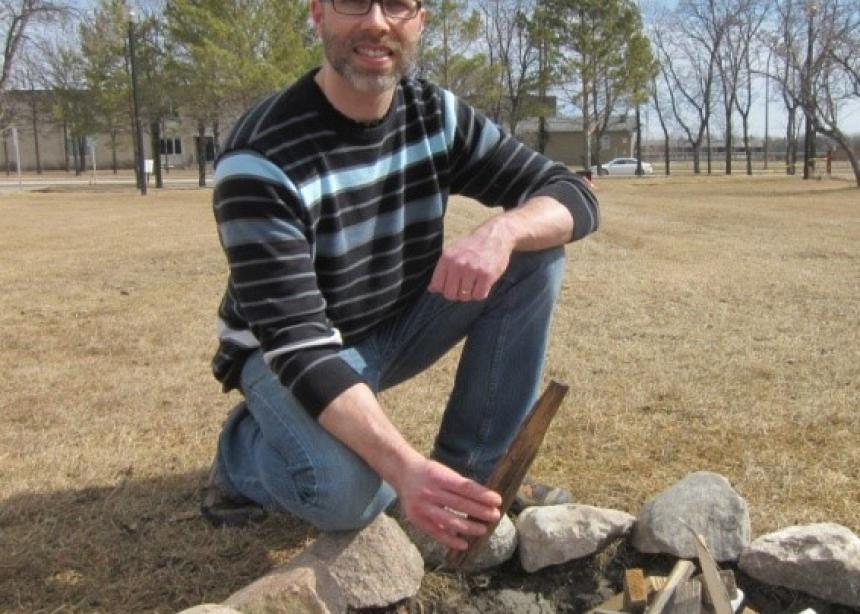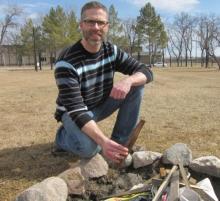Steve Heinrichs grew up in urban Vancouver, enjoying the nearby ocean, mountains and rivers of coastal Canada without giving much thought to their presence or condition.
“I don’t have an intimate relationship with the land,” he says. “I grew up an urban kid. Concern for the environment is a new learning experience for me.”
Heinrichs’ recent years of work as director of indigenous relations for Mennonite Church Canada has given him much to think about. He is well-read on the history of indigenous peoples, the land and climate change. He brings a big picture view to his passion for creation care. New knowledge and insights drove him to develop the critically acclaimed book, Buffalo Shout, Salmon Cry—a collection of well-known aboriginal and non-aboriginal authors, poets, and artists who create a conversation among themselves throughout the book, with a focus on caring for the earth.
From Easter Sunday through April 22—Earth Day—Heinrichs is spending his personal vacation time, including weekends, reflecting and meditating on scriptural directives to respect and care for the land. Each day he will spend some time in silence and prayer around a sacred fire on a grassy area between two parking lots at the Mennonite Church Canada offices on the campus of Canadian Mennonite University.
Heinrichs invites anyone who is interested to join him around that fire from 11:00 am to 1:00 pm for what he is calling “a time to Watch and Pray.” A journal will be available for participants to record their thoughts and prayers. Extra chairs will be available.
He understands that his identity as director of indigenous relations and his strongly felt personal call to respond to a “groaning creation” are difficult to separate. But he’s clear that “Watch and Pray” is a personal initiative and not an official action of his role as a national church worker.
The intention, Heinrichs says, is to create a prayerful space to bear witness to the current creation crisis related to climate change, mass species extinction, biodiversity loss, and alarming rates of pollution and resource depletion. He hopes to “fan the flames of dialogue and discipleship.”
“As a Christian community, we take hope in the surprising news that the Crucified has been resurrected. Yet if the poor and the non-human creation are currently in Gethsemane, or even on the cross, what is the Spirit saying to the church?” asks Heinrichs.



Add new comment
Canadian Mennonite invites comments and encourages constructive discussion about our content. Actual full names (first and last) are required. Comments are moderated and may be edited. They will not appear online until approved and will be posted during business hours. Some comments may be reproduced in print.